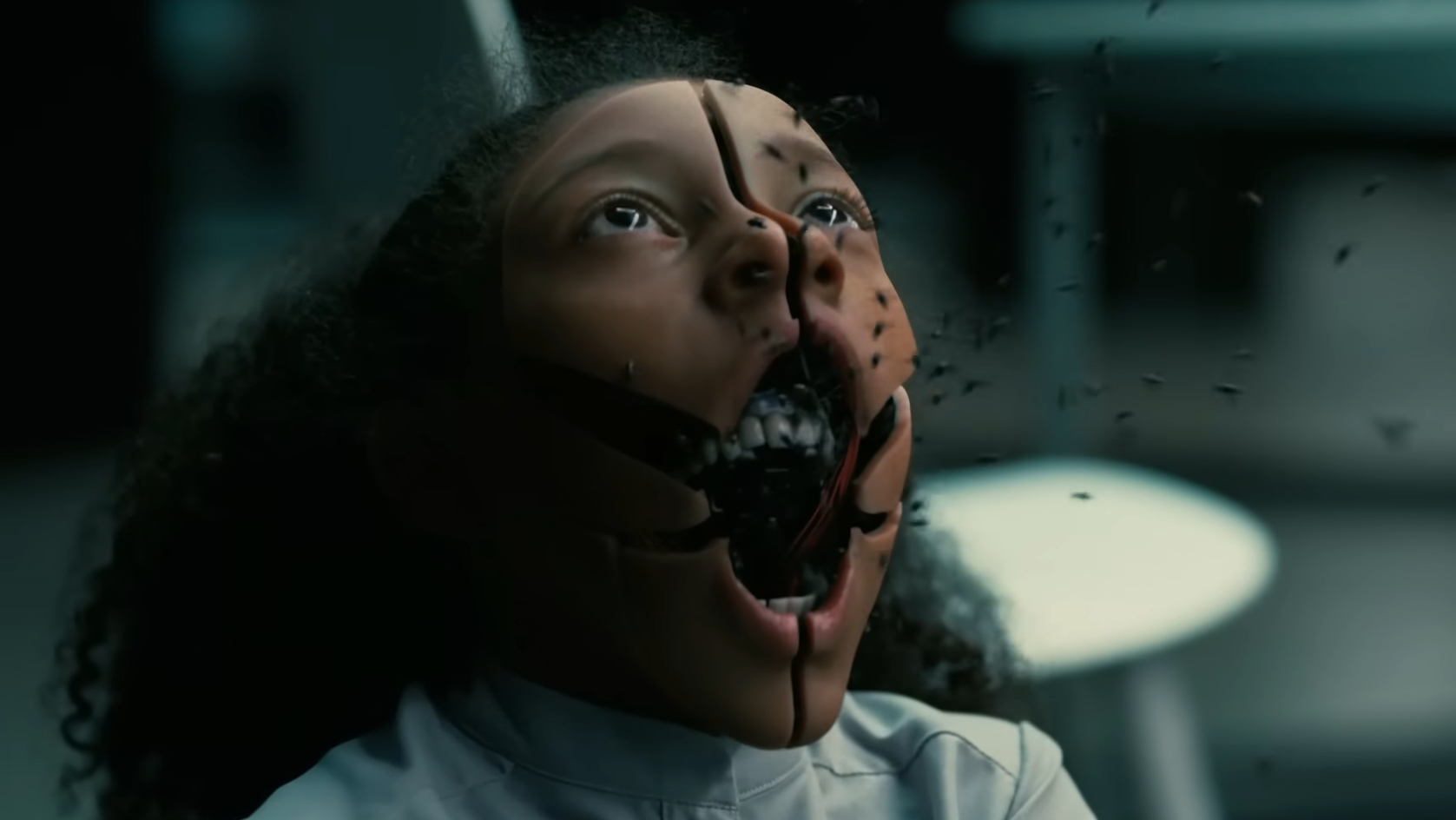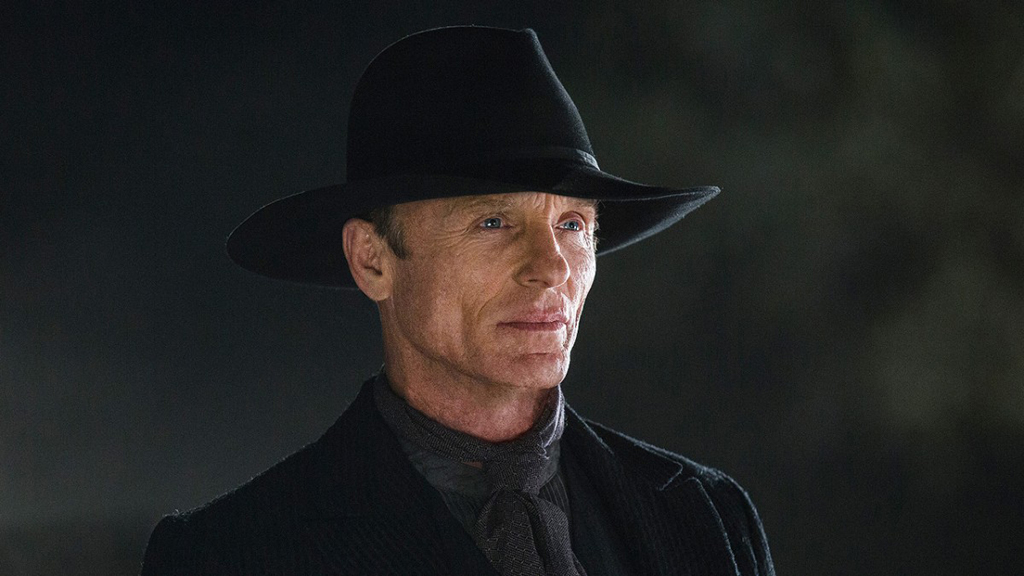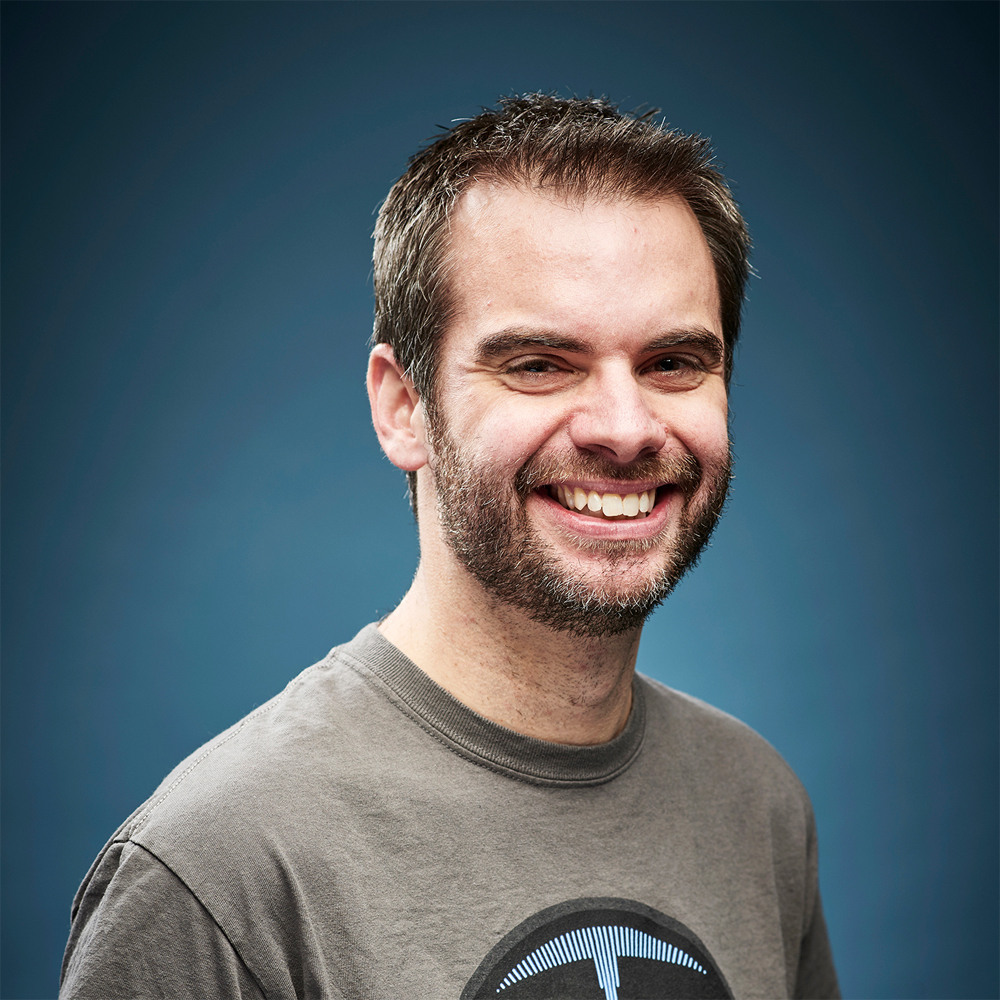Westworld season 4 proves the show is all out of ideas...
Westworld continues to revel in its multi-layered unpredictability – but that doesn't mean it's new

Sign up for breaking news, reviews, opinion, top tech deals, and more.
You are now subscribed
Your newsletter sign-up was successful
The original Westworld is not a movie you’d describe as complex. In fact, running at a brisk 88-minutes, writer/director Michael Crichton’s Jurassic Park prototype doesn’t have much room for depth. There’s a futuristic theme park, the robot attractions malfunction, and a black-clad gunslinger (played by The Magnificent Seven’s Yul Brynner) goes on an epic killing spree – and that’s pretty much everything you need to know.
When showrunners Jonathan Nolan and Lisa Joy set out to adapt the film into a big-budget HBO drama, it was clear they’d need to expand the story in new directions. But nobody could have predicted the levels of narrative complexity they’d introduce to their dark update.
Beyond HBO-standard R-rated content – which, at times, makes Westworld feel like the Game of Thrones of sci-fi – the show has embraced multi-layered, puzzle box narratives, where anyone could be anything, timelines couldn’t be trusted, and everything you thought you knew was almost definitely wrong.
After watching the first four episodes of the upcoming season 4, however, it’s becoming increasingly clear that the greatest trick Westworld ever pulled was convincing the world it had something new to say. Just as Delos theme parks Westworld, Shogun World and Warworld are glossily repackaged versions of history, the show convinces viewers they’re part a highly innovative entertainment experience, when actually it’s going where many others – not least itself – have gone before.
Haven’t we seen this before?
With its A-list cast and blockbuster-level production design, Westworld can compete with Obi-Wan Kenobi, Stranger Things and the MCU shows when it comes to delivering TV on cinematic scale. But – perhaps ironically for a show with a foot so squarely in the future – it’s just as in thrall to the past.
From the series’ earliest days, themes about robots rebelling against their creators have felt like a riff on Battlestar Galactica, but as the show has evolved and the balance of power has shifted towards the machines, The Terminator and The Matrix influences have moved higher in the mix – scenes where familiar characters live out new lives will create strong feelings of déjà vu for anyone who watched the recent The Matrix Resurrections. There are also strong echoes of the 1978 version of Invasion Of The Body Snatchers, while Nolan has arguably pinched ideas about machines with the capacity to predict the future from his own long-running CBS show, Person of Interest.

While the terrain is familiar, however, Westworld rarely gives you an opportunity to get comfortable. In a world where the android Hosts can be reborn and rebooted, and – as confirmed in season 3 – lifelike VR simulations are possible, every character’s personality is fluid and unknowable. The actors have effectively become a repertory company, taking on new roles to suit the story, but unlike in, say American Horror Story, the show doesn’t always signpost who or what they are.
Sign up for breaking news, reviews, opinion, top tech deals, and more.
For example, rebellious host Dolores’s apparent death in season 3 didn’t have to mean the end for Evan Rachel Wood’s involvement in Westworld. So now she’s back as Christina, a new (or is she?) character living as a writer in New York. She’s looking “for a happy ending”, while her enthusiastic roommate (played by West Side Story Oscar-winner Ariana DeBose) does everything she can to set her up with a boyfriend. There are numerous tantalizing nods to Christina’s previous existence, but – in typical Westworld style – expecting immediate answers to the many questions thrown up by her new situation will inevitably end in disappointment.
Changing the rules
Westworld pays a price for making its leads so hard to define, however, because everything it gains in narrative complexity it loses in emotional depth. There’s a coldness and distance to almost all of Westworld’s characters – whether human or Host – and if it wasn’t for Thandiwe Newton’s Maeve (who continues to run around like some superhero gifted the power of dominion over machines), the show would be almost entirely devoid of humor or humanity.
While Aaron Paul (Caleb)’s previous smash hit show, Breaking Bad, didn’t go so hard on the mind-bending narrative tricks, it explored depths of the human soul that Westworld is currently incapable of reaching. Indeed, for all the strategically deployed identity shifts, you can’t avoid the feeling that Westworld’s characters have been generated by computer algorithm, fulfilling a role as pieces in an extremely complex jigsaw puzzle.
If Westworld is a game, however, it’s one where the rules are constantly shifting. Where most of the best sci-fi and fantasy has a fixed set of rules to keep things ‘real’ – whether they involve faster-than-light space travel or the use of magic – Westworld feels like it’s making stuff up as it goes. If Chekhov’s Gun defines the literary theory that a gun shown in the first act of a play should be seen firing later on, Westworld’s approach is more along the lines of: “the robot you thought was a human is killed at the end, with an unknown weapon, by a guy you thought was someone else living in a different timeline”. When traditional notions of time, location and identity are undefinable, all of the time, does telling viewers something new really count as a twist? Is bombarding you with new ideas clever writing, or an admission that nobody knows what the show is or where it’s going. We’ll have to wait to find out...

But for all the unguessable, often frustrating reveals – ta da! – anyone who’s made it as far as Westworld season 4 will know exactly what they’re getting. Much as season 3 flipped a familiar format on its head by moving the action outside a theme park, the first four episodes of the new season make an admirable effort to shake things up, with a new family for Paul’s Caleb, and an icky insect-shaped threat. And yet there’s still a degree of familiarity, a sense that there’s no need to make a significant update to factory settings when you can have Charlotte Hale (Tessa Thompson) continuing her crusade against humanity, and return Ed Harris to his original Man in Black persona – a move that presumably pleased the actor, who’d previously told Vulture that “I signed on to play the Man in Black, so [season 3] wasn’t the most joyous season for me”.
What HBO has shown us so far reveals the usual mix of beautifully choreographed action, people and robots doing horrible things to each other, and unpredictable plot twists that materialize from – as far as we can tell – another dimension. This show continues to score top marks for presentation, but if you’re looking for emotion or the sense you’re watching something you’ve never seen before, Westworld 4.0 doesn’t really constitute an upgrade.
Westworld season 4 airs on HBO and HBO Max from Sunday June 26 in the US. UK viewers can catch the show on Sky Atlantic and Now TV from June 27.
Richard is a freelance journalist specialising in movies and TV, primarily of the sci-fi and fantasy variety. An early encounter with a certain galaxy far, far away started a lifelong love affair with outer space, and these days Richard's happiest geeking out about Star Wars, Star Trek, Marvel and other long-running pop culture franchises. In a previous life he was editor of legendary sci-fi and fantasy magazine SFX, where he got to interview many of the biggest names in the business – though he'll always have a soft spot for Jeff Goldblum who (somewhat bizarrely) thought Richard's name was Winter.
